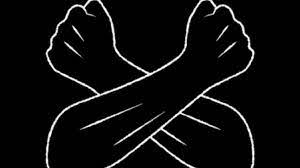Today is International Women’s Day. The theme for 2022 is #BreaktheBias. The campaign asks you to cross your arms in solidarity to call out gender bias, discrimination and stereotyping.
In the novel To Kill A Mockingbird, one of the most important quotes that Atticus said was, “You never really understand a person until you consider things from his point of view-until you climb into his skin and walk around in it.”
It’s true that its harder to understand or write about discrimination and biases unless you have faced them, even so it’s important that men in particular confront the biases faced by women. Gender equity is not a female issue, it’s a social and economic necessity. It’s vital that men like me are part of the conversation. After all, they make up about half of the global population - not to mention the majority of the leadership positions.
McKinsey and Company (2021) states “There is still a “broken rung” at the first step up to manager. Since 2016, we have seen the same trend: women are promoted to manager at far lower rates than men, and this makes it nearly impossible for companies to lay a foundation for sustained progress at more senior levels.”
Its important to consider the biases and stereotyping that women face, but, let’s for one moment consider the additional barriers that black women in the workplace are confronted with. This is another level of bias, its conscious, unconscious and sometimes just old fashioned racism. If I was being generous I might say it’s due to ignorance, but in this age of technology and information, is it really that difficult to educate ourselves on the issue?
Just consider for a moment the abuse Diane Abbott MP faced when making errors during the 2019 election. Do you think that a white male would have received the same abusive treatment? Numerous politicians have made gaffs and errors including our current Prime Minister, but non have faced the level of misogynistic racist abuse that Abbot did.
More recently in America, Joe Biden has nominated the first Black Women, Ketanji Brown Jackson, to sit on the US supreme Court, the highest court in America. She is highly qualified and respected amongst her peers.
However, last week Fox News host Tucker Carlson demanded to see Jackson’s Law School Admission Test results! Waldman of the Washington Post wrote “This is something almost every person of colour in politics faces sooner or later, no matter how brilliant and accomplished they are, Conservatives will claim that they’re unqualified and dumb.”
There has been some notable successes, and the recent election victory for Paulette Hamilton, who became the first black MP from Birmingham, shows that despite all the challenges, women of colour can still break through. But this is unfortunately not the norm. Black Women in the workplace are often overlooked for promotions and not considered for senior roles, not seen as ‘the right fit’ or not ‘quite there yet’.
Recent research carried out by the Black Women in Leadership Network showed that:
Four in ten Black women do not believe that they are offered the same career advancement opportunities as their non-black female colleagues, with almost half believing that they are overlooked for promotion
Two in three Black women experienced racial bias at work
A third of Black women resigned due to experiencing race-related unfair treatment
Four in ten Black women do not believe that they earn the same as their non-black female colleagues who are performing the same job – convinced that racial bias was a contributing factor to the earning disparity
Employers can sometimes convince themselves that they have an inclusive culture and that everyone feels respected and part of the team. In reality the truth is sometimes very different. Many women of colour ‘simply keep quiet’ for fear of being accused of being disruptive or even aggressive. Many stay silent through fear of demotion. Many, just keep ‘their heads down’ and try to fit in, with the hope that they will be recognised for the great work they do day in day out. Many women of colour are just emotionally exhausted with ‘racial fatigue’ and eventually leave, often taking lower paid roles.
Employers need to break this cycle, not simply putting in place polices that suggest an inclusive culture, but instead stress-testing that culture. Employers need to remove the barriers that prevent progression for black women, not just understanding the culture of the organisation, but also the culture of those working within the organisation. Employers need to challenge their own and their teams unconscious bias that affects women and black women in particular.
#BreaktheBias



